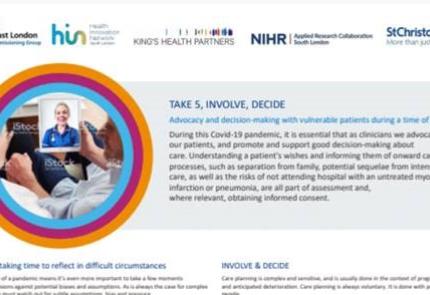Media attention has transferred to the ‘opportunity costs’ of this strategy highlighting the low attendance at A&E (30 %) and the exceptionally low hospitalisation rates (60% rather than the normal 90+%).
It seems that people with serious diseases (for example stroke and heart attacks) are not seeking medical help, either to ‘protect the NHS’ or themselves from iatrogenic Covid infection. Cancer patients are facing delay in their diagnosis and treatment.
Chris Whitty the Chief Medical Officer of England has always talked about the indirect deaths linked to Covid, either short term because of NHS efforts targeted at Covid or in the longer term as the result of socio-economic factors. Health inequalities are likely to widen without action to support those most vulnerable to the economic and other effects of social distancing measures.
We have also seen the media shift away from the acute NHS challenges to care provided in social care homes and how the national shortage of PPE and Covid testing is having a profound effect on how this sector is coping. It may well be in retrospect that our approach to this sector will represent the weakest aspect of our response to the pandemic.
So, care in the community is emerging as the next key area in the response to Covid-19, which will be played out in the next weeks and months. Two weeks ago South East London Clinical Commissioning Group established a working group led by Natasha Curran (of the Health Innovation Network and King’s Health Partners and Implementation Lead for the ARC South London) to provide a rapid resource to support decision making outside hospital. I was part of a group of clinicians, managers, patient advocates who came together with ethicists and legal advisors with the aim to provide guidance to clinicians in the community, on best practice for decision making with those patients with social vulnerabilities and those at risk of an unnecessarily medicalised death.
